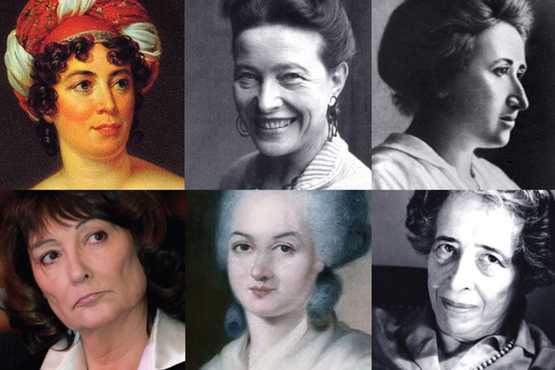Please join us for the first workshop of the Spring 2017 Term:
Success and Stereotype: The Underrepresentation of Women in Academic Philosophy
Rebecca Traynor, The Graduate Center, CUNY
From Coordination to Cooperation: Switching to Team Reasoning
Jules Salomone, The Graduate Center, CUNY
Tuesday, March 21, 11:45-1:15pm
Location: The Graduate Center, CUNY, Room 5489
Please see the abstracts for the talks below:
Success and Stereotype: The Underrepresentation of Women in Academic Philosophy
Women are overwhelmingly underrepresented in academic Philosophy. Two reasons are proposed, “different voices” and “the perfect storm.” According to “different voices,” women are intrinsically mismatched to Philosophy. Women are hard-working, social, and cooperative, but Philosophers—and men—are innately brilliant, solitary, and competitive. On “different voices,” then, to increase women’s representation in academic Philosophy we ought to discourage the kind of competitive commentary currently common among scholars at conferences. According to “the perfect storm,” women are capable of high-level Philosophical work, but are discriminated against thanks to the stereotypes about women and Philosophers upheld by “different voices.” Because these stereotypes portray women as fundamentally unsuited and men as fundamentally suited to Philosophy, women are less likely than men to be encouraged, feel confident—which increases success independent of skill—or be considered qualified candidates, and, hence, more likely to leave the discipline. Consequently, on “the perfect storm,” we ought to promote models of successful women Philosophers on conferences and on syllabi.
While I agree with “the perfect storm’s” causal story about the reasons women leave academic Philosophy, in contrast to either solution given above, I recommend neither “feminization” nor tokenism as most appropriate to increase women’s representation in the discipline. “Feminizing” Philosophy further upholds harmful stereotypes and is often assumed tantamount to dumbing down. Introducing more women Philosophers at conferences and on syllabi is laudable and ought to be encouraged, but is unlikely to sufficiently impact pervasive and recalcitrant gender stereotypes fostered from a young age; token women are assumed either to deviate from the norm or to have gained unfair advantage. Rather, I hypothesize improving pedagogical practices is best suited for increasing diversity in academic Philosophy. Attrition rates for women are high across all levels of the discipline, but are most pronounced after introductory, undergraduate-level courses. My intervention is thus especially aimed at this critical stage.
Typically, Philosophy students are asked to read difficult, often poorly-written texts and write research papers without much in way of reading and writing instruction, example, or group practice. Tasks such as group brain-storming, paper drafting, and peer editing aim to improve philosophical skills via traits assumed to hold true for women but not successful Philosophers. I argue explicitly encouraging and, moreover, linking effort and collaboration to successful philosophical progress will not only improve all students’ and future Philosophers’ critical thinking and academic research and writing skills, but also promote gender diversity in academic Philosophy. Further, I provide qualitative data from my own teaching experience suggesting explicit instruction in philosophical skills teaches students that Philosophy requires tenacity, effort, and collaboration.
From Coordination to Cooperation: Switching to Team Reasoning
My main motivation is to argue that when placed in situations of coordination, agents have a pro tanto reason to cooperate, where this pro tanto reason derives from conditions constitutive of their agency. To defend this claim, I spend the first two sections analyzing the concept of cooperation. In the first, I show that Bratman’s account of shared cooperative activity fails to exclude Nash Equilibria generally deemed non-cooperative. I offer my analysis of the concept of cooperation in the second and argue that, in order to avoid counterexamples to which Bratman’s account falls prey, a necessary condition on cooperation is that the cooperative activity be favored by reasons acceptable to all parties from their shared perspective. In arguing so, I de facto include some version of the game-theoretic notion of team reasoning in my account of cooperation. I then stipulatively define coordination as – roughly – situations in which reasonable agents’ deliberations include considerations about others’ decisions and actions. A consequence of coordination is that the success of agents’ actions depends on others. I finally argue that if control is a constitutive condition of agency, then agents ought to cooperate in order to exert joint control on their endeavors.



